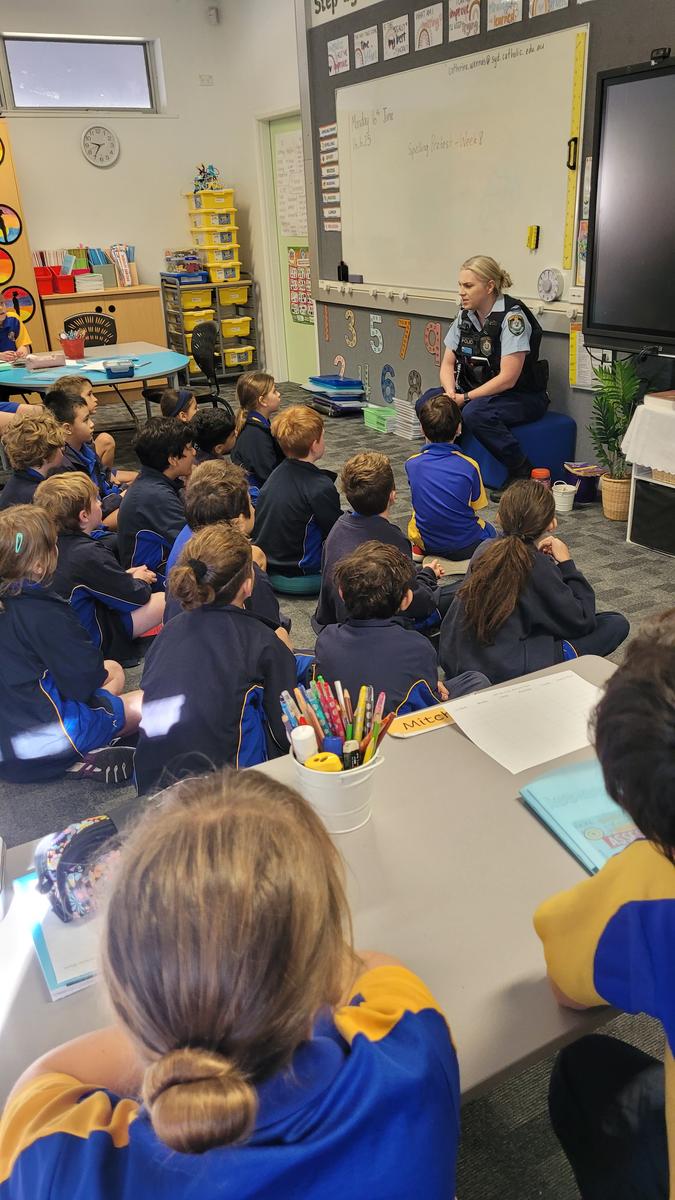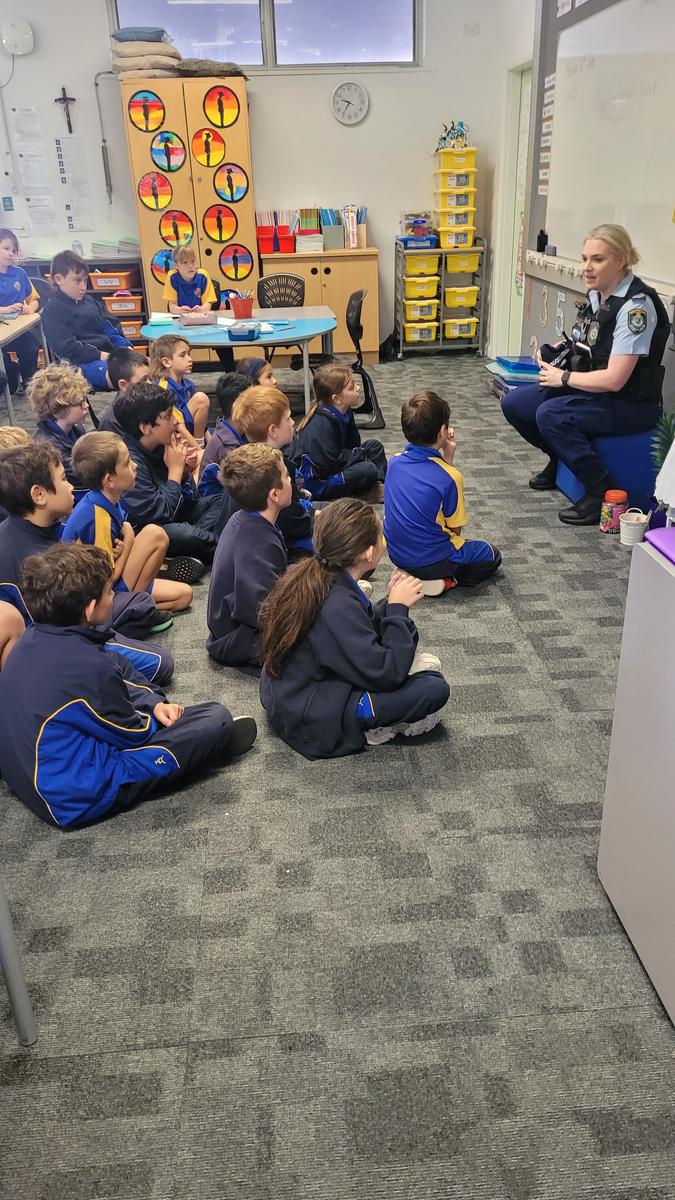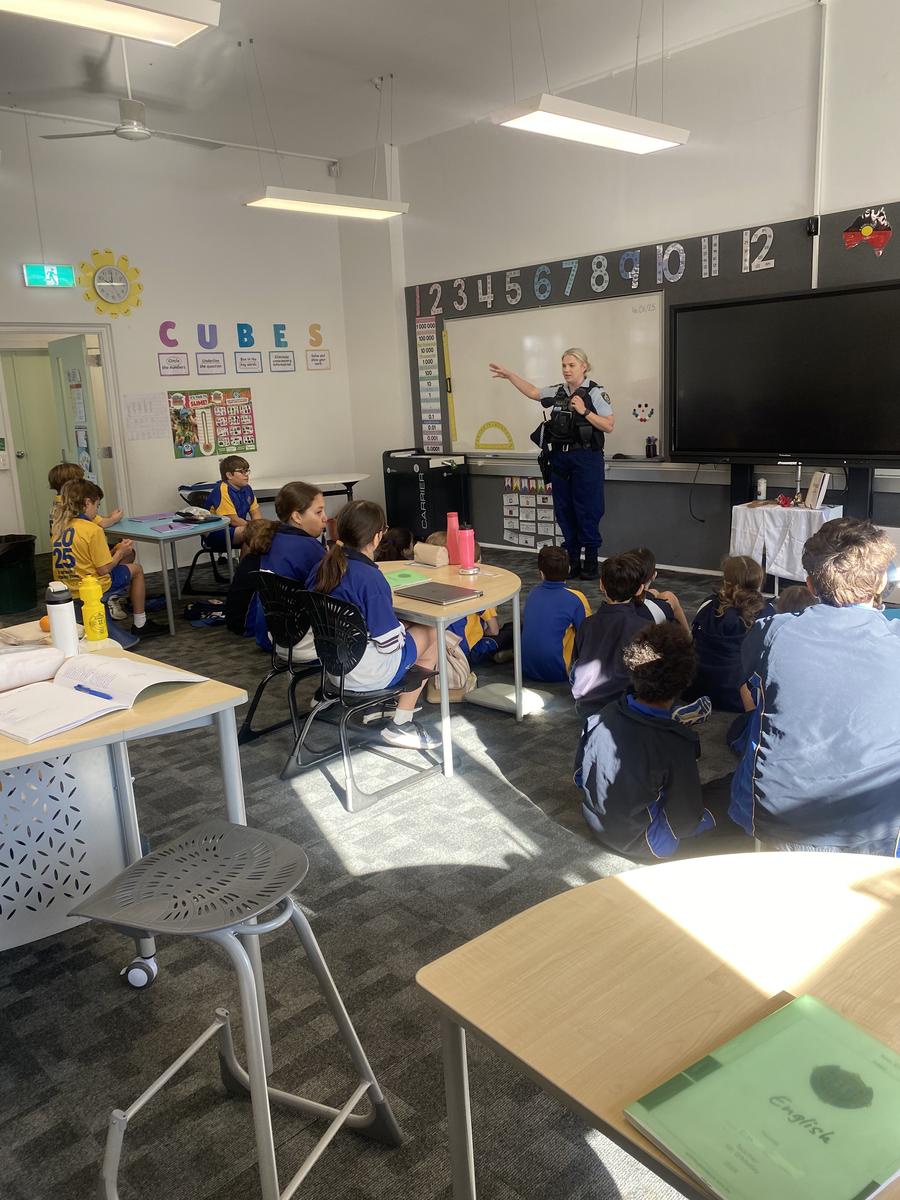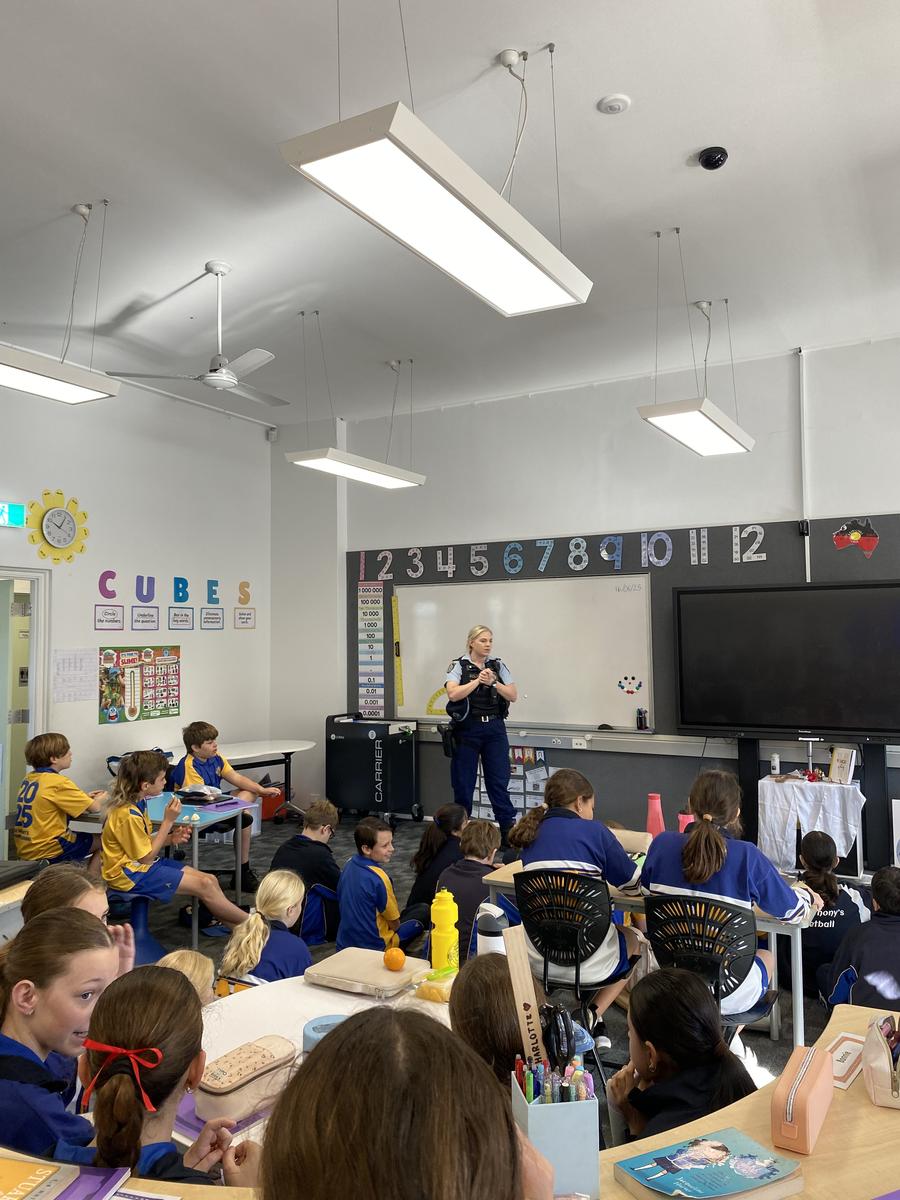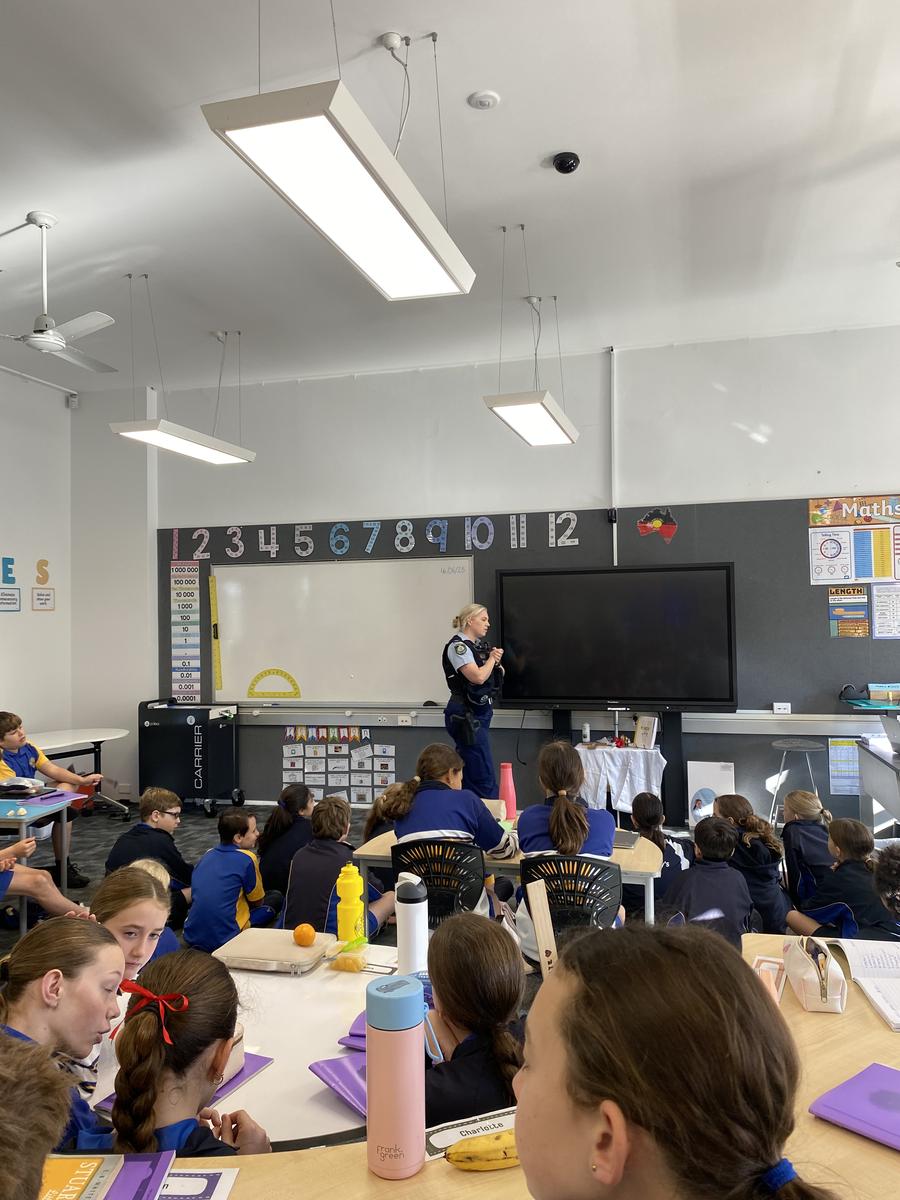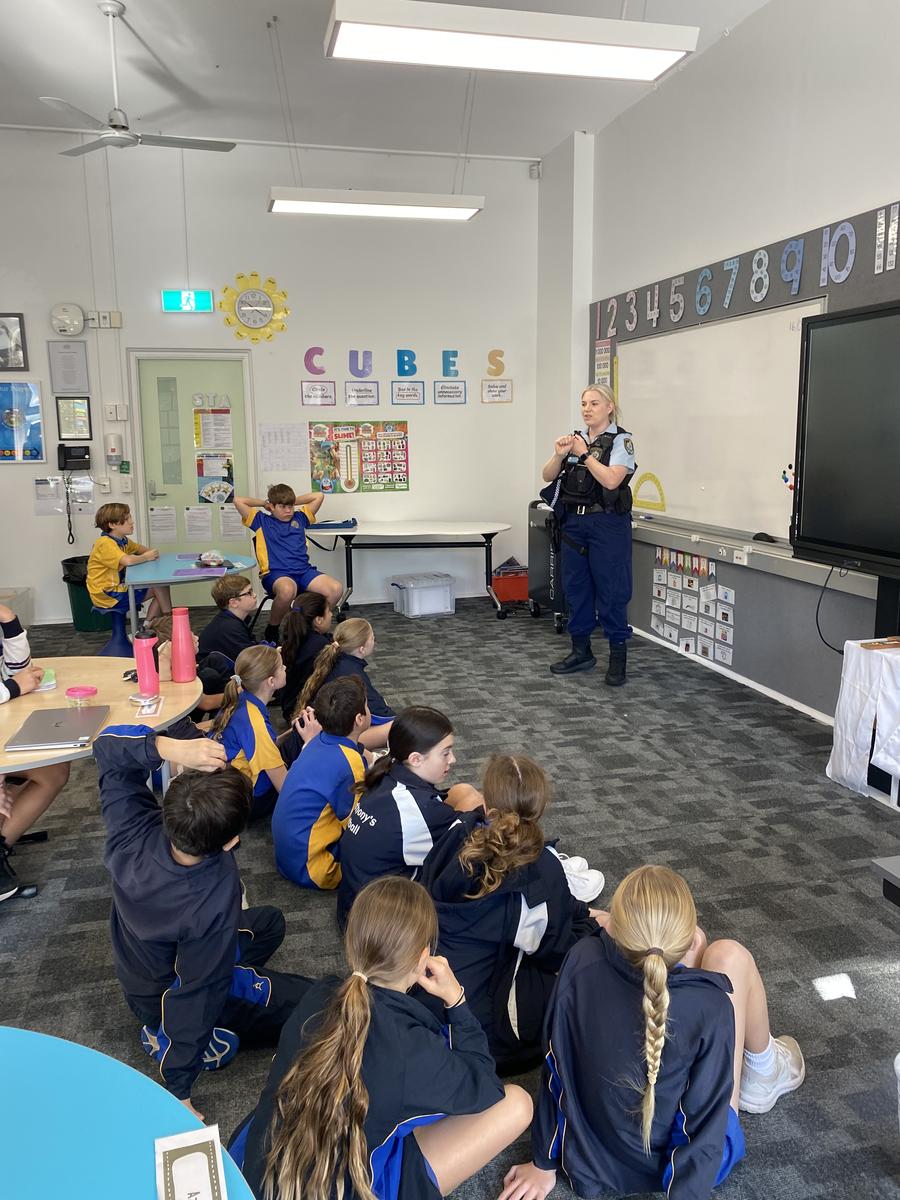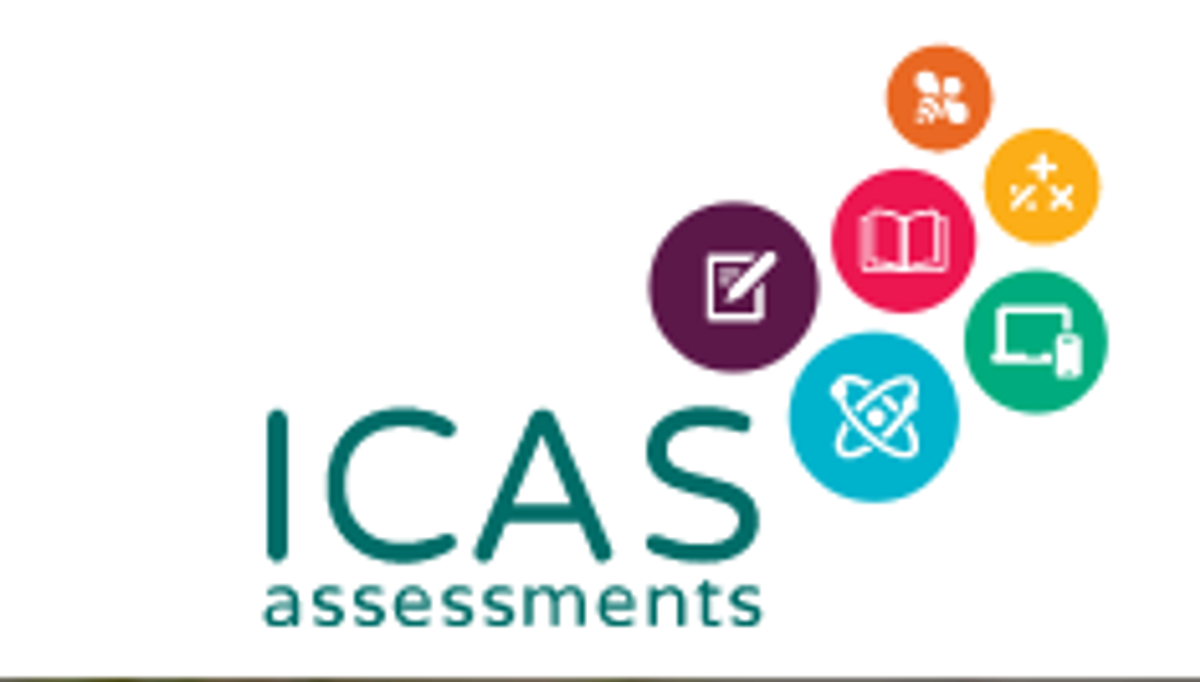Assistant Principal's Message

Police Liaison Officer Visit – Years 3 to 6
On Monday, students in Years 3 to 6 were visited by our local Police Liaison Officer for an important and engaging session. The officer spoke with students about the serious issues of bullying and cyberbullying, and shared practical tips on how to stay safe when using online platforms. It was a valuable opportunity for students to learn how to protect themselves and others, both in the real world and online.
Behaviour Management Policy
The Behaviour Management Policy outlines the principles, strategies, and expectations that guide how St Anthony's School support positive behaviour and respond to challenging behaviour within our learning environment. Our School goal is to create a safe, respectful, and inclusive atmosphere where all individuals feel valued and supported.
The Behaviour Management Policy is grounded in the belief that behaviour is a form of communication and that all students have the right to learn and thrive in a positive environment. We are committed to promoting self-regulation, empathy, and mutual respect through consistent, fair, and proactive approaches.
Wellbeing: How to be a Good Friend
Talking to your child about being a good friend is an important part of their social and emotional development. Here are some tips and information for parents on how to approach this topic effectively:
Understanding Friendship
Explain what Friendship means and provide examples: Discuss what it means to be a good friend. Use simple terms like "being kind," "sharing," "listening," and "helping each other." Provide examples from their life or stories where characters demonstrate good friendship qualities.
Key Qualities of a Good Friend
Kindness: Explain that being kind means treating others with respect, using polite words, and considering their feelings.
Sharing: Teach the importance of sharing toys, snacks, and other items. Explain that sharing helps build stronger friendships.
Listening: Encourage active listening by making eye contact and not interrupting when their friend is speaking. Emphasise that understanding others is key to a strong friendship.
Empathy: Help your child understand empathy by discussing how to recognise and respond to their friends' feelings. Ask them how they would feel in certain situations to build their empathetic skills.
Trust: Explain that friends trust each other by keeping promises and being honest. Discuss how trust is built over time through consistent, positive behaviour.
Practical Tips for Parents
Role-playing: Use role-playing scenarios to practice being a good friend. Act out situations where they can demonstrate kindness, sharing, and empathy.
Positive reinforcement: Praise your child when you see them being a good friend. Positive reinforcement encourages them to continue exhibiting these behaviors.
Model good behaviour: Be a role model. Show your child how to be a good friend by demonstrating these behaviors in your relationships.
Discuss real-life situations: Talk about real-life situations where they struggled with friendship. Discuss what they did well and what they could do differently next time.
Books and stories: Read books and tell stories that highlight the qualities of good friendship. Discuss the characters' actions and how they contributed to their friendships.
Dealing with Challenges
Conflict resolution: Teach your child basic conflict resolution skills. Explain how to calmly discuss issues, listen to each other's perspectives, and find a compromise. Prepare your child for times when friendships may not work out.
Inclusivity: Encourage your child to include others in their activities and to befriend classmates who may feel left out.
Communication Strategies
Open conversations: Keep lines of communication open. Regularly ask your child about their friends and how they feel about their friendships.
Active listening: Listen to your child's concerns without immediately offering solutions. Sometimes, they need to feel heard and understood.
Ask open-ended questions: Use open-ended questions to encourage your child to talk about their experiences and feelings. For example, "What do you like most about playing with your friend?" or "How did you feel when your friend did that?"
Encouraging Social Skills
Playdates and extracurricular activities: Arrange playdates and involve your child in group activities to provide opportunities to practice friendship skills. Enroll your child in extracurricular activities where they can meet and interact with new peers, learning how to form and maintain friendships in different settings.
Parent/Teacher/Student Conferences
Next week the Parent/Teacher/Student Conferences commence. It will be a time for both parents and teachers to speak positively about their child’s progress and about their child’s challenges. I certainly welcome your feedback regarding any aspect of the P/T/S conferences.
Parents and teachers are both vital and critical to the wellbeing and development of our children and we must always work together to make the most of children’s learning and to nurture their talents.
Our teachers spend the ‘9 to 3’ part of the day with the children, facilitating their learning. Countless hours aside from this time are then spent each day correcting and assessing the student’s work planning lessons, preparing resources, meeting with support teachers to discuss children’s needs, professional development to continually improve the quality of their teaching, regular meetings with parents to discuss children’s progress, staff meetings, organising excursion opportunities, carnivals and many, many more while, at the same time, juggling their own family lives and finding time for reflection and self renewal.
The Plant-astic Presentation
Years 2-6 Student presentations and open afternoon
Students in Years K-6 will choose a Plant to research that integrates Reading, Writing, Geography, History, Science and Languages in a fun way. Each student will choose a plant to study and research for the next 8 weeks. They will be responsible for understanding the geography of the land, the climate, the plant features, and some fun facts...etc...that make it unique.
During Term 2, Week 9, each student will present their plant in any form they choose (e-books/ song/ poem/ booth board/ video/ story/ drama play/ dress up/ slide presentation/ drawing/ sculpture/ artwork/ build a model/ cardboard presentation/growing of plant/ diorama) to the rest of their class.
On Monday, 30th June - Week 10 @ 2:15 pm, we will have an open afternoon for parents and carers to visit and see what great talent and academic abilities we have at St Anthony's School in Years 2-6.
LINK: The Plant-astic Presentation
International Competitions & Assessments for Schools (ICAS)
ICAS is a series of competition assessments, set at a challenging level, which focuses on problem solving skills. Students who sit ICAS are asked to demonstrate a deeper, integrated, and thorough level of learning. The assessments are suitable for students wishing to extend themselves academically and take up the personal challenge of competing in an international assessment.
ICAS assessments can serve as a valuable tool for parents to gain insights into their child's academic performance, make informed decisions about their education, and support their learning journey effectively.
The exams are available to students in Years 2 to 6. The test will be administered BEFORE SCHOOL at 7:45 am in the Year 2 classroom and will be supervised by Mrs Iorfino.
The following table shows the exams and the dates on which the exams are held. The cost per test is indicated below.
In 2025 students have the opportunity to participate in the following subjects:
SUBJECT | SITTING DATE | COST |
ICAS English | Monday 11 August 7:45am Year 2 Classroom | $20.95 (inc. GST) |
ICAS Mathematics | Monday 25 August 7:45am Year 2 Classroom | $20.95 (inc. GST) |
Please note: ICAS assessments have a strict testing window and if a student is absent on the designated day of testing, it may not be possible for them to complete the test.
If you would like your child to participate in any of the subjects listed above, please visit the online Parent Payment System to make a direct payment. The Parent Payment System is a simple and secure online payment service specifically for parents to purchase ICAS Assessments. Please note, we cannot facilitate refunds or make alterations as all money is paid directly to ICAS Assessments.
The web link: https://shop.icasassessments.com/pages/parent-payment/RID107
Our school’s unique access code is: RID107
Online payment closes: Monday, 28 July 2025
|
Each assessment celebrates students’ accomplishments by providing opportunities for recognition. Every student will receive a printed certificate and an online result report. Top performers will be eligible for medals.
IMPORTANT: Please enter your child’s name accurately into the System as this is how it will appear on their ICAS certificate.
2025 Staff Development Days (Pupil-Free Days)
Each year, Sydney Catholic Schools (SCS) provides time for Staff Development Days (SDD) which provides professional learning time for all staff. With the introduction of the new English and Mathematics Syllabus' in 2023 (K-2) and 2024 (Years 3-6) and the implementation of other syllabi within the next two years, SCS has provided the following days in 2025.
| Term 2 |
|---|
| Friday 4 July |
| Term 3 |
|---|
| Monday, 21 July |
| Monday, 8 September |
| Friday, 26 September |
| Term 4 |
|---|
| Monday, 13 October |
Blessings,
Marie Iorfino
Assistant Principal
